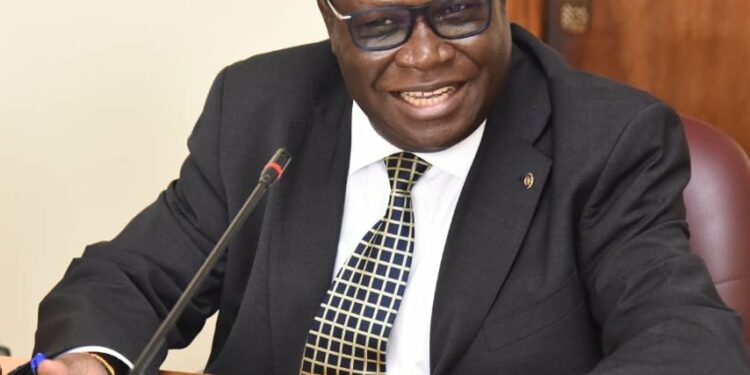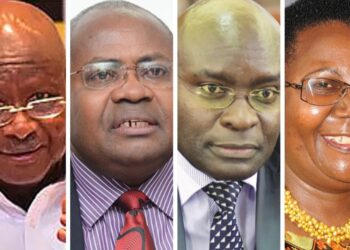The Minister of Justice and Constitutional Affairs, Norbert Mao, has assured Ugandans that the ongoing transfer of marriage-related roles from the Uganda Registration Service Bureau (URSB) to the National Identification and Registration Authority (NIRA) will not negatively impact the atmosphere or experience of civil marriages.
His reassurance comes amidst concerns about the introduction of a new requirement for couples to present their national IDs before conducting marriage ceremonies.
While appearing before the Legal and Parliamentary Affairs Committee to defend several constitutional amendment bills, the Minister assured the lawmakers that the Government’s proposal for the merger of certain agencies, and transferring others, like URSB, back under the Ministry of Justice and Constitutional Affairs as part of its rationalization policy aimed at streamlining operations and cutting costs.
“I can tell you, we have been working very closely with the Ministry of Internal Affairs. For us as the Ministry of Justice, we make sure that whenever we have to work with anybody, it isn’t about flying little flags, but it is about taking a wholly Government approach. As I talk now, the staff of the Uganda Registration Services Bureau (URSB) who are in charge of marriages have been moved to the National Identification and Registrations Authority (NIRA), as authorized by you,” Mao stated.
He further emphasized that the new policies will not interfere with the experience of civil marriages, which are usually held in settings designed to be special for couples. Mao noted that despite the ongoing transfers, the ideal facilities for weddings remain available.
“But the facilities for the marriages are actually in the URSB building because that is where the red carpets are, the nice chairs and so on. I don’t think marrying couples want to go to Kololo Airstrip, which is a site under construction, for their weddings,” he added.
Mao’s remarks come after it was revealed that all couples intending to get married will be required to produce their national IDs before marriage ceremonies. This requirement is seen as part of the broader integration of registration systems within the country, which the government believes will enhance service delivery.
Rationalization Policy and Agency Merger Plans
Mao also used his time before the committee to defend the proposed abolition of the Center for Arbitration and Dispute Resolution (CADER). He explained that this decision was influenced by a survey conducted among legal practitioners, who found the body ineffective in adding value to Uganda’s legal landscape.
Citing former American President Ronald Reagan, Mao said, “The American President Ronald Reagan once said, while describing his Government in America, that it is like the alimentary canal of a baby, with a huge appetite at one end, and no sense of responsibility at the other end. It is, therefore, the duty of the August House to align itself with the intentions of Government to use resources optimally.”
The Minister argued that Ugandans are often resistant to the government’s rationalization policy due to misconceptions about its efficiency.
“And also perhaps, because the minds of so many people have been poisoned, that Government is so inept, but this is the same Government which guards our borders so that nobody attacks Uganda and then people say, the Government is doing nothing. But this is the same Government which guarantees the territorial sovereignty of Uganda so everybody finds it very risky to attack Uganda. You ask Al Shabab, but you find people saying, no, we need this agency because the Government cannot do it,” Mao asserted.
He further urged the Legal Committee to approve the integration of CADER into a department under the Ministry of Justice, emphasizing that this move would lead to better training and accreditation of individuals practising alternative dispute resolution (ADR).
“This is something which we can’t gamble with, so the Department will prepare materials for training. The Department will also accredit those to practice alternative dispute resolution. I have now on my desk, people requesting to be accredited as mediators, but we don’t have a basis for accrediting them,” Mao explained.
Mao assured the committee members that these amendments were not controversial and were consistent with the Government’s policy on rationalization, which Parliament had previously supported. The changes, he stressed, were intended to save money and ensure better use of resources.
Do you have a story in your community or an opinion to share with us: Email us at editorial@watchdoguganda.com













